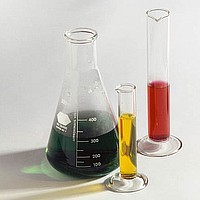Home

Buy Wholesale
-
NEW -
Amsoil Dealer
ONLINE
Registration
the Fastest Way to Register
Amsoil Dealer Application
USA - Paper
Amsoil Dealer Application
Canada - Paper
Become an Amsoil Dealer and Buy at Wholesale Prices
Amsoil Preferred Customer Trial Offer Buy 25% Off Retail
Open a
Commercial Business Account On-Line
Retail Accounts Sell AMSOIL in your Store or Shop
Amsoil Dealer Wholesale Price List
Home Business is Booming
Request a Free Factory Catalog, Product & Technical Info
Free Lubrication
E-Training Series
About Us
Contact Us
Toll Free 877-786-9582

Buy Now
Online Store

To Order
AMSOIL Products by Phone from Factory Call
7AM to 5PM
Central Time
800-777-7094
Give the Operator
Reference # 1173195
Corporate Company, Products, and
Opportunity Videos
Amsoil
Snowmobile High Performance Oils
Snowmobile Racing Oil

400,000
Miles of Snowmobile Testing - No Power Valve Sticking, Ring Sticking, & No
Engine Failure!
A Look at
Snowmobile Exhaust Power Valves
Amsoil
Snowmobile Racing & Sponsorship
2
Cycle Oil Chart
2 Cycle High
Performance Oils


Amsoil Motorcycle Synthetic Oils
Motorcycle Oil Dyno Tests
AMSOIL Quality Impresses Harley Riders

AMSOIL Does not Void Harley Warranty
Why
Harley Owners Choose AMSOIL Vs HD Oils
*NEW*
EaO Synthetic Motorcycle Oil Filters Outperforms all other Cellulose and
Synthetic Filters, Period
*NEW* EAA Synthetic Motorcycle Air
Filters Surpasses all other Technology, Period

Expert Advice For
Your Vehicle
Filter Guide

Amsoil
Transmission Product Guide
Amsoil Turbo Diesel Pickup
Truck Information Section
Amsoil Synthetic Diesel Oil
Chevy
Duramax Turbo Diesel
Ford Power
Stroke 7.3 and 6.0 Turbo Diesels
Dodge
Cummins Turbo Diesel
Biodiesel Fuel and its effects on Engine Operation and
Lubricant Service Life
*New* - Diesel Fuel Additive for Low Sulfur Fuel
Q/A - Why
Change the Former AMSOIL Diesel Fuel Additive
EPA Has Mandated Changes for 2007 Diesel Engines
AMSOIL
Diesel Oil for Model Year 2007 and Newer Heavy-Duty and Pickup Truck Diesel
Engines

Has
the price of fuel
got you down? We can help! Click on the following pages!
8.2% More MPG with AMSOIL Products
10 Ways to Help Reduce Our Dependency on Foreign Oil
Tips to Increase Fuel Economy
AMSOIL Lubricants Save You Money
AMSOIL Reduces Operating Cost and Improves Efficiency
Save Money at the Gas Pump
Alternative-Fuel-Vehicles
Amsoil Reduces Clark County Bus Operating Costs
How to Save Money on Fuel
Are You Concerned About the Environment?
Please Read the Following
AMSOIL the Right Environmental Choice
Amsoil Preserving Our Environment
Antifreeze Non-Polluting
Synthetic Oils and the Environment
AMSOIL Pi Reduces Carbon Monoxide (CO) up to 26%
By-pass Filtration Systems Dramatically Extend Oil Drain Intervals
Oil Analysis
Earth Day Article
Carbon Footprint Environment
California to Bust 3,000 Mile Oil Myth
Environment Carbon Footprint
Amsoil Company
Profile
ExxonMobil Follows AMSOIL Into Extended Drain Market
Synthetics: The Auto Industries Best Kept Secret
General
Questions And Answers
Ten Myths About Synthetic Lubrication
AMSOIL, Inc.
Product Chronology
Ford and Honda's 5W-20
Issue
North
American Engine Oils May be Harmful to European Engines
Oil
Color, Lubrication Ability and Contamination Level
Engine Oil
Flushing Procedure
The History of
Engine Oil Filtration
The Benefits
of Amsoil
Piston Failure
Warranty Laws You Need to Know
AMSOIL Warranty
Lubricants
AMSOIL Warranty
Filters
Worried Over Warranties?

Comparative Motor Oil Test Results
Oil Testing
Reference Guide
AMSOIL Outperforms Valvoline Gear Lube
New
White Paper - "A Study of Automotive Gear Lubes
Anti Wear
Additives
AMSOIL-The
Company of Firsts
Important
Information: Converting to AMSOIL and Breaking in a New Engine
Easy Steps In Changing Automatic Transmission Fluid and Filters
Transmission Flushing
Issues
Amsoil
ATF Exceeds Ford Mercon V Oxidation Test
What to do when the Change Oil Light Comes On
40 Reasons for Oil Consumption
Oil Analysis
Amsoil
Product Recommendations & Drain Interval Chart
Amsoil Motor Oil and Filter Guide
AMSOIL Racing Oils
AMSOIL Racing Grease
AMSOIL Drag
Racing ATF
AMSOIL
Racing
WIX Racing
Oil, Air, and Fuel Filters
Red Line Oil
vs. AMSOIL Racing Oil Wear Scar ASTM Test Results
Royal
Purple Oil vs. AMSOIL Racing Oils Wear Scar ASTM Test Results
AMSOIL
Checkered & Green Flag Racing Updates
AMSOIL
Racers of the Past
AMSOIL
Dealers
Informative Articles
Are
Synthetics Really Too Expensive?
Amsoil Customer
Testimonials
AMSOIL Distribution Center Locations
Amsoil Packaging
Options
Privacy Policy
AGGRAND - Natural Lawn & Garden Products

Site Map
Links & Resources
| |
If you want to buy AMSOIL
Products, visit the
AMSOIL On-Line Store
Converting to AMSOIL and
Breaking in a New Engine. Critical Information That You Need to Know.
Some of the most frequent questions people ask us about AMSOIL are, what is
required in order to convert to AMSOIL, how long do I have to wait before
installing AMSOIL in a new engine, and what can I expect to notice once
converted to AMSOIL?. Here are our answers in a detailed explanation:
Converting a vehicle to AMSOIL is fairly simple, but there are a few things you
need to be aware of. First, if you have a brand new vehicle we recommend that
you run a short cycle of petroleum oil on a gas engine passenger car or light
truck (typically 500 miles) and approximately 5000 miles on a diesel engine in
such as a Ford Powerstroke or Dodge Cummins Turbo Diesel before installing
AMSOIL. This doesn't mean that you can't install AMSOIL sooner, as many OEM's
install synthetics as a factory fill, it simply means these are our
recommendations based on our extensive engineering studies and knowledge of this
topic. Today's modern engine manufacturing and materials technology is much more
sophisticated than in years past. Regular gas engine passenger car and light
truck engines do not require the extensive break in process many people think
they do. In addition, by the time you get your new vehicle the engine has
already been through a series of hot tests also run on in-plant chassis rolls
testers to check functionality of all systems and then driven around the plant
and railhead in order to get the vehicle to the dealer, which also helps
accelerate breaking in of the engine.
The engine break-in issue is the subject of much controversy as everyone seems
to have their opinion on when an engine is considered fully broken in.
The information we provide is based on the results of engineering studies as
well as many years of experience and teardown analysis on test vehicles. The
differences between a vehicle that was properly and fully broken in and one that
was not can often be hard to detect, yet there are tell-tale signs of this but
they are not easily detected except in all but the most extreme situations.
The subject of what occurs during the break-in process can easily be the subject
of a 100 page report therefore what we cover in this website page is only the
essential points you need to know. The break-in process we describe here is
nothing compared to the extensive break-in process that race car engineers go
through before an engine is ready to be converted to AMSOIL as well as racing in
competition.
Breaking in an engine is a process of properly wearing-in the
pistons/cylinders/rings, bearings, valves, camshaft, lifters, rockers, etc... In
addition, part of the breaking in process is not only wearing-in and seating the
internal engine components but also stress relieving the components as well.
Crankshafts, connecting rods, pistons, blocks etc... have many stresses due to
the casting or forging process, machining and welding process. We have viewed
and measured these stresses, called fringes, using what is called lazer
holography. These stresses are properly reduced/eliminated by costly and time
consuming heat aging as well as shot peening and or high frequency vibration on
a very specialized bedplate for an extended period of time. For production
applications this is cost and time prohibitive. Therefore, the next best thing
is exposing your engine to multiple heating and cooling cycles under various
load and RPM's, which is described in the following paragraph. The heating and
cooling break in process continues over a period of time and does not need to be
run on petroleum oil.
Breaking in a new engine is the one area that petroleum oil is better for than
synthetics. You see, petroleum oil has a very low film strength which is ideal
for breaking in a new engine. That is why we recommend you run the factory
installed petroleum oil for about the about the first 500 miles. Then drain the
oil, remove the factory installed oil filter and then install AMSOIL Synthetic
motor oil and an AMSOIL Super Duty oil filter and your ready to go.
Further heat cycling break-in will continue during the multiple heating and
cooling cycles from driving your vehicle under varying RPM and engine load
conditions and then shutting it down for a long period of time to let it cool
completely. The multiple heating and cooling cycles are a extremely important
factor in properly breaking in a new engine and are often an overlooked factor
in the total break-in process. These heating and cooling cycles achieve what is
called stress relieving. Back in the "old days" of engine manufacturing, after
casting and before an engine block was machined, it would be set outside for
several months to age, during which stress relieving occurred naturally, then
the block was machined, which helped to produce a better engine than one that
was machined immediately after casting.
By changing the factory installed oil and filter after the first 500 miles you
will also be removing the initial wear-in particulates present in the oil and
filter. The reason for this is that during initial wear-in there is very high
particulate contamination in the oil. These particulates consist mainly of
microscopic particles of aluminum, bronze, copper, lead and iron, plus soot
particles and other by-products of combustion in your oil. Your filter cannot
filter out all these small particulates as many are sub-micron size and too
small for the filter to trap, BUT they are also small enough to fit between your
bearing and other internal clearances and cause wear. That is why we recommend
to that in order to properly break-in a new engine, regardless of what your new
car salesman or dealership personnel tell you, is to perform the first oil and
filter change at 500 miles. Then you can convert to AMSOIL Synthetic. On a
diesel engine we recommend the initial filter and oil change at 500 miles, with
another change around 3500 miles, then in the 5000 mile range you can convert to
AMSOIL Synthetic.
AMSOIL Engine Flush: In a new engine with less than approximately 20,000
miles it is not imperative that AMSOIL Engine Flush be used. In an engine with
more than 20,000-30,000 miles and beyond, that has been using petroleum oil the
entire time, we highly recommend using the AMSOIL Engine Flush. What the engine
flush will do is remove the petroleum oil sludge & varnish deposits from your
engine and properly prepare your engine for AMSOIL Synthetic Motor Oil. You
simply pour in one can for every 5-6 quarts of sump capacity (one can is
sufficient for most all passenger cars & light trucks, with the exception of
diesels), and let the engine idle for about 15 minutes then drain the oil and
remove the filter while the oil is still warm. Do not drive the vehicle with the
engine flush installed. If you have an extremely dirty or high mileage engine
then we recommend installing a new engine oil filter prior to adding the flush
so that you have full capacity of the filter available for capturing and holding
the dirt particles that the flush removes. AMSOIL's Engine Flush is a detergent
based flush with some kerosene and other petroleum distillates that act as the
carrier for the flushing and cleaning agents. The detergent used is a
2-butoxyethanol, glycol ether and is essentially a very concentrated form of the
detergents used in motor oil.
AMSOIL Synthetics are naturally cleansing and also high in detergents. What
happens when you operate an engine on petroleum oil, the sludge and varnish
deposits that occur as a result of using petroleum oil will accumulate around
your pistons, rings, seals, valvetrain, etc.. and actually help to seal your
engine. This type of petroleum oil deposit "sealing" can lead to problems such
as piston ring sticking, sludge deposits in valve covers and oil pans which can
lead to decreased oil pump capacity output and restriction of critical oil
galley passageways over an extended period of time, plus many more issues which
we will not go into detail in this discussion.. These deposits are highly
detrimental to the proper function and longevity of your engine.
What occurs when you use AMSOIL Engine Flush is that it cleans all these
deposits out from your engine, both the highly accumulated deposits as well as
the sub-micron deposits which have accumulated in the microscopic valleys of the
aluminum, copper, iron, etc.. engine components. If you do not use the engine
flush the AMSOIL Synthetic Motor Oil will do essentially the same thing the
flush does but take a much longer period of time. During this time, which is
greatly accelerated when using the AMSOIL Engine Flush, the engine is going
through a phase where these deposits are being removed, or have been removed.
What exists now is that these microscopic valleys in the iron, aluminum, copper,
etc.., are now empty. It takes some time for the molecular structure of the
AMSOIL Syntheitc Motor Oil to fill these microscopic valleys. This can be as
short as a few hundred miles or as long as a few thousand miles, depending on
the internal condition of your engine. During this phase you may, or may not,
notice slightly increased oil consumption BUT only until the uniform
molecular structure of the AMSOIL Synthetic Motor Oil can re-seal these
microscopic valleys. Most people do not even
notice this phase, but we like to make people aware of it so they
understand this process. This is perfectly normal and the oil is doing exactly
what it was engineered to do.
You may have heard the myth that synthetics cause engine seals to leak.
Synthetics absolutely do not cause seals to leak, they simply may only reveal an
existing leak path and seal which has failed and is in need of mechanical
replacement. Either the seal lip is worn down or the seal is hardened and
cracked from old age, heat and ozone. What happens is exactly as we described
above. If you have a very old engine that has been running petroleum oil, and it
also leaks, for example around the rear-main oil seal, then chances are it will
leak more with synthetic oil. This is commonly referred to a false seal. AMSOIL
Synthetic Motor Oils are recommended for use in mechanically sound engines! If
you have a vehicle that leaks oil excessively, then repair the seal prior to
converting to AMSOIL.
AMSOIL Benefits:
Once you have installed AMSOIL you will notice the following benefits: easier
cold weather starting, cold weather pumpability and circulation, smoother engine
performance and more horsepower, reduced exhaust emissions, superior wear
protection, improved fuel economy, extended engine life, extended starter life,
excellent engine cleanliness, long drain intervals, longer spark plug life,
reduced engine temperatures, reduced oil consumption, excellent resistance to
sludge, coke, varnish deposits (Thermal Stability), reduced/eliminated piston
groove sticking, reduced/eliminated valve sticking, superior shear stability,
superior resistance to viscosity increase (Volatility Resistance), superior film
strength, money and time savings. You will not get any of these benefits with
conventional petroleum oil.
When you compare....there is
simply no comparison.
Options
to Receive Information on Amsoil Lubricants and Filtration Products
and the Wholesale Purchasing Program
"We welcome the opportunity to
work with you personally as your servicing AMSOIL Dealer."
Option 1
-
The Best Option!
If you are serious about AMSOIL products
and the business opportunity, this is
the best option.
You will receive extensive technical and business support from both
myself and my Dealer Group. We look forward to helping you
learn about AMSOIL.
Also, we can help you set up a
professional website to promote your AMSOIL Business.
If you would like a
comprehensive wholesale pricing, product, technical and business
package sent to you just click the following link to our form:
Request a Free Amsoil Catalog & Info Packet
"FREE" Receive an AMSOIL Wholesale Packet, Product Data,
Wholesale Price List, Dealer/Preferred Customer Application Form, and a Retail Catalog
by Email.
Click Here
for Your Free Packet!
Option 2
-
For a smaller, very general
information package (which includes a catalog and Dealer application
from Amsoil) you can request the information from any of the Amsoil
links below.
To request a FREE Amsoil Factory Direct Catalog
For Information on Becoming an AMSOIL Dealer
To Buy Products in the On-Line Store
To Sell AMSOIL in Your Store or Purchase For Use in Your Businesses
Equipment
To visit the AMSOIL Corporate Website for Product and Business
Opportunity Information
AMSOIL
is Proudly Made in the U.S.A.
About
Us
|
Home |
Contact Us |
On-Line Store |
Links |
Privacy Policy |
Site
Map
Enhanced Synthetic Oil,
a Division of
Racers Products, LLC
Kent Whiteman
Amsoil Regency Dealer
Ogden, Utah 84403
Phone Toll Free:
877-786-9582
Email:
kent@enhancedsyntheticoil.com
Copyright© 2014 Enhanced Synthetic Oil
a Division of Racers Products, LLC all Rights Reserved. No part of this
authorized Amsoil Dealer website may be reproduced or distributed
in any form or by means, or stored in a database or retrieval system, without validated
prior written permission. Special undetectable methods are used that will identify any of this website material
copied, reworded, rewritten, and published to the web.
 Like us on Facebook
Like us on Facebook
|





